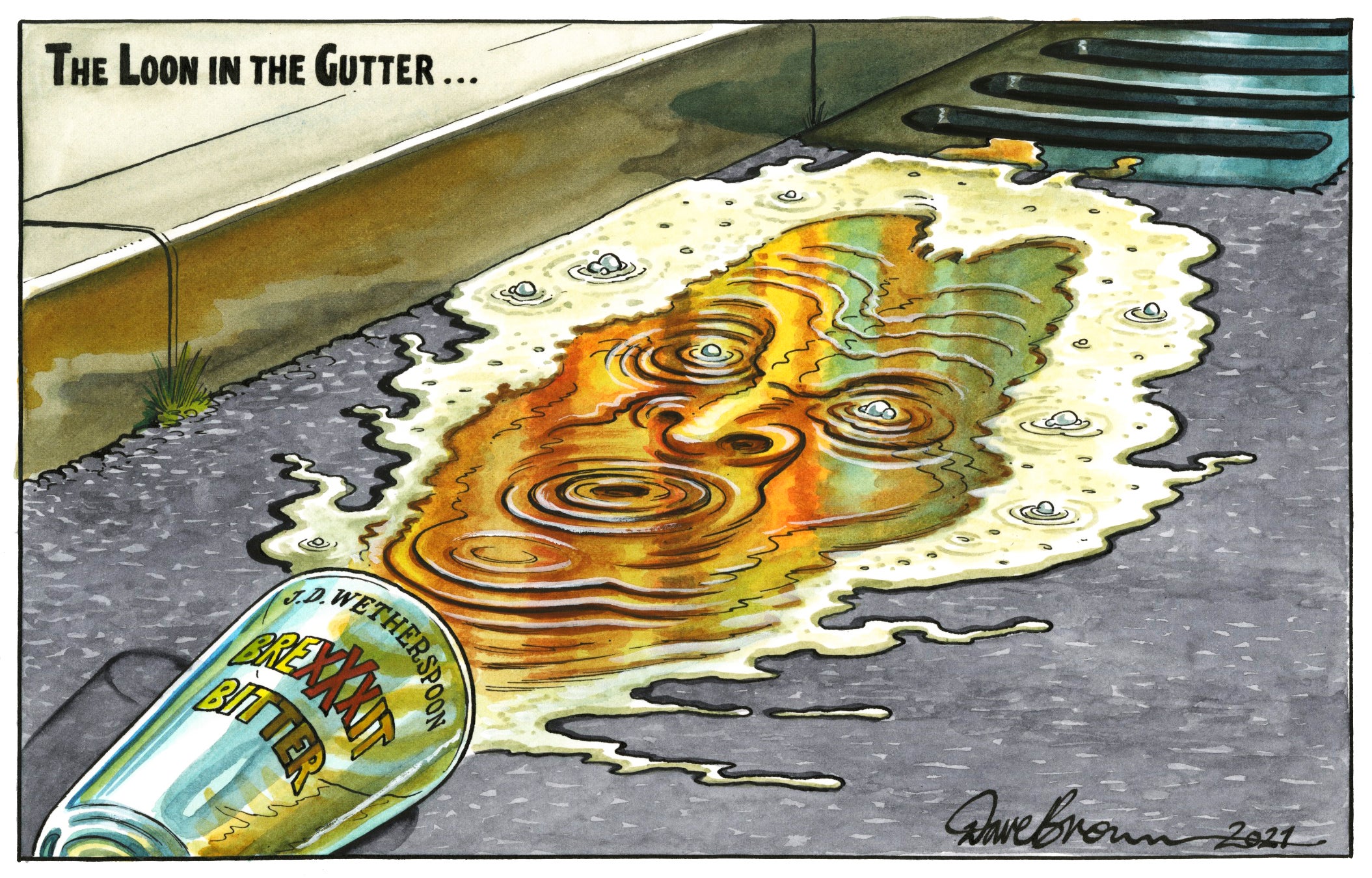Is Wetherspoon’s Tim Martin actually right about post-Brexit migration?
The list of occupations eligible for a mainstream UK work visa is currently surprisingly broad, writes Sean O’Grady


To much merriment, Tim Martin, chair of Wetherspoon and campaigner for a hard Brexit, now wants to make it easier for workers from the European Union to work in his ubiquitous pub chain of some 925 establishments. “If only there was some way of bringing this about” and “Tim Martin is going to be very annoyed with Tim Martin when he finds out” go the typically sardonic remarks on Twitter. Very droll, but at least a tad unfair.
During the 2016 referendum, Martin actually did express the view that he thought EU labour should still be able to move more or less freely to the UK, and doesn’t seem to have had immigration as his principal motivation in seeing the UK leave the EU; but of course exiting the single market made the end of free movement of workers inevitable. So it has come to pass, and the loss of such labour is complicating the economic recovery from Covid, with the impact of the end of the furlough scheme yet to be felt. Certainly there will be a period of adjustment; and businesses such as Wetherspoon may face higher labour costs in future, which may mean lower profitability and/or higher prices. We shall see.
Martin’s appeal, though, does serve to highlight two difficulties with the new post-Brexit points-based immigration system recently approved by Parliament. The first is that the general plot of the immigration policy is to attract the “best and the brightest”, skilled and professional workers, and people who will be earning at least around the average UK salary, and often much more. In fact the list of occupations eligible for a mainstream UK work visa is currently surprisingly broad – everything from medical radiographers to senior care workers to ballet dancers to vets to archaeologists. There seems little or no impediment to anyone from anywhere in the world, suitably qualified, to apply to come to the UK and work as a nurse, as any type of engineer or as any kind of “artist”, given certain salary expectations. All are classified as “shortage” occupations. There are also special routes for those, for example, nominated by a transnational company or bank, and those named by the likes of the Royal Society, the British Academy and UK Research and Innovation.
However, despite evidence to the contrary offered by Martin and others, there is officially no shortage of bar staff and no visas available to them, nor is there likely to be given their relatively modest pay. So Wetherspoon, like other pub, hotel and restaurant chains, will just have to manage as best they can.
Even if the government relented, eventually, and allowed some pint pullers from Portugal or Poland to enter the UK, it would still be the case that any bureaucratic system of categories and visas can never be as flexible and responsive as market forces, and thus the points-based system will always be slow to react to the demands of a dynamic labour market, with consequent difficulties for employers and investors in the more labour-intensive sectors. Even where the Home Office has tried to accommodate economic need, it has been an untidy exercise. The seasonal work permit scheme, for example, has a quota for fruit and potato pickers, but none for flower picking. And so, also, under the strain of Brexit, the daffodil “crop” has mostly been left to rot in the fields.
Economically, in the long run, the new system may well mean greater automation (and thus fewer jobs for human beings), and the loss of certain businesses that have relied on EU labour for decades but which cannot adapt to the new circumstances in an economically viable way. No doubt Wetherspoon, a large and highly successful business, is better placed to find a way through these vicissitudes, but many others will go the wall. Politically, the operation of a points-based system with no particular quotas attached to most jobs means that there is no longer any cap, target or other limit on the numbers of workers able to enter the UK perfectly legally. Whether the many Leavers who complained about immigration in the run up to the Brexit referendum now realise the radical and liberalising change in immigration policy that has just been enacted by Priti Patel remains to be seen. It is fair to say, in any case, that Tim Martin, for rather different reasons as a businessman, is unhappy with the way things are turning out.
Join our commenting forum
Join thought-provoking conversations, follow other Independent readers and see their replies
Comments
Bookmark popover
Removed from bookmarks